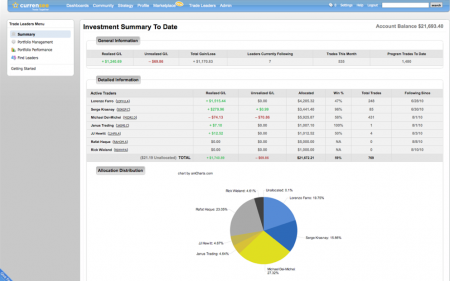Should You Invest in Foreign Currency Accounts
Post on: 16 Март, 2015 No Comment

I received several question from readers asking opinions on foreign currency account (FCA). Some people look at it as if it is a very safe and high yield investment because some foreign currency denominated account gives more than 7% interest per annum.
In order to post a thorough research for you, I fired some emails to most of the banks in Malaysia. Guess what? Only Citibanks Ms. Amie Heryanie from Internet Service Support replied my email enquiry within 2 working days. At the point of writing this post, the other banks still havent responded yet. If after reading this report, and you had made up your mind to open a FCA, please consider Citibank as your first choice.
What is a foreign currency account? How it works?
Foreign currency account is an account maintained in a bank in another currency than the currency of the country in which the bank is located. In Malaysia, FCA is an account denominated in currencies other than Malaysia Ringgit. Banks which are designed by Bank Negara Malaysia to open foreign currency accounts are called Designated Banks .
Denominations offered :
USD (840) = US Dollars
GBP (826) = Pound Sterling
AUD (036) = Australian Dollars
SGD (702) = Singapore Dollars
CAD (124) = Canadian Dollar
CHF (756) = Swiss Chronos (Francs)
NZD (554) = New Zealand Dollars
HKD (344) = Hong Kong Dollars
Photo by bradipo
Purposes of opening a FCA
Nowadays, banks promote foreign currency account investment heavily. What is the main purpose for a person to put his money into a foreign currency account?
1. Hedge against exchange rate fluctuations
Foreign currency accounts can be a good option for importers and exporters. If you open an account in the currency in which you make the bulk of your transactions you can hedge against exchange rate changes by keeping money in the account until the rate is beneficial to you.
2. An alternative form of investment with potentially higher interest rates
For example, a fixed deposit FCA denominated in New Zealand Dollars gives 8.2% interest rate per annum for the period of 12 months, as offered by United Overseas Bank.
3. For future child education funding
If you plan to send your child to study in Australia, saving your childs education fund in an Australian Dollars denominated FCA will save you the worries of Australian Dollars appreciation.
4. For non-resident employed in Malaysia to retain foreign currency salary received from overseas.
5. Transactions are less costly and save a significant amount of money lost through the exchange conversion process to :
- Individuals with children studying overseas
- Individuals who are employed overseas or have regular income from abroad
- Repatriation of funds from individual FCAs offshore send back to FCAs onshore
Risk Involved in FCA
Because of the risk-return trade-off, higher potential returns are associated with higher risk. Foreign exchange markets can be volatile. Currency positions held in these markets may involve actual losses. Whats the risk involved with a foreign currency account?
1. Market Disruptions
From time to time, significant events can occur that disrupt the normal operations of financial markets. Such events may reduce the liquidity of a currency or of the foreign exchange markets generally. Examples:
- failure of a major institution
- war
- a major political event
- failure of a government to meet its financial obligations (sovereign risk)
If, as consequence, there is a movement in the exchange rates, such events could result in a financial loss to holders of foreign currencies.
2. Market Risk

Market risk is the risk that prices including exchange rates and foreign currency interest rates will move adversely. There is a risk that exchange rates and foreign currency interest rates will change, possibly suddenly and substantially, causing you to incur a significant actual loss as a result of your investment
3. Currency Risk
Currency risk is the risk that because of adverse exchange rate movements the value in Ringgit of your FCA may fall. Should you hold an offsetting position in the foreign exchange markets or in a commitment to spend this currency then your loss maybe offset in part or in full by the offsetting position.
4. Interest Rate Risk
There is no interest rate risk if you are investing using Time Deposit Account with fixed tenure.
Type of Accounts
1. Time Deposit Account
With foreign currency Time Deposit Account, you can deposit your foreign currencies for a period of ranging from 1 to 12 months and enjoy high interest rates. Standard Chartered Bank Malaysia provides tenures as short as 1 week.
- Similar to Fixed Deposit
- Tenure ranging from 1 week to 12 months
- Minimum initial term deposit requirement
- Interest paid upon maturity
Some banks provide interest rates return. For example, UOBs Foreign Currency Call Account let you earn as high as 6.2% p.a. denominated in New Zealand Dollars.
- Minimum initial call deposit requirement
- Interest rate calculated daily and credited monthly
- No minimum withdrawal amount required
3. Multi-Currency Account
This type of account is a special product offered by RHB. RHB Multi-Currency Account is an interest-bearing account that offers customer the opportunity to hold up to 13 foreign currencies in one account. For a multi-currency account, it is also divided into two groups the call deposit and time deposit.
Requirement to Open a FCA Account
The criteria to open the said account is as below:
- Minimum age of 18 or 21 years old (depends on banks policy)
- Copy of IC (Malaysian)
- Passport & work permit with validity not less than 24 months (if foreigner)
- Secondary Documents (proof of employment/education)
- Minimum deposit of USD1,000-10k or equivalent, depends on banks
Note: FCA are offered to individual account holders only.
Standard Terms and Conditions
- Residents without domestic credit facilities are free to open foreign currency accounts with no caps on limit.
- Residents with domestic credit facilities are capped to USD150,000.00
- for foreign currency accounts (FCAs) opened solely to facilitate education and employment overseas; and convert Ringgit for credit into foreign currency accounts (FCAs) up to RM100,000.00 per annum, for purposes other than education or overseas employment.
- With all of the above, all account openings are subjected to bank branch managers approval and must be within the guidelines of the Exchange Control of Malaysia (ECM) .
Definition of Domestic Facilities
Resident obtaining any Ringgit advance, loan, trade financing, hire purchase, factoring, leasing facilities, redeemable preference shares or similar facility in whatever name or form, other than-
- One personal housing loan & one vehicle loan (hire Purchase) obtained from residents
- Credit card & charge card facilities
- Trade credit terms extended by a supplier for all types of goods & services
- Forward exchange contracts entered with authorized dealers
- Inter-company borrowing within a corporate group
The following are also considered domestic borrowings:
- 1 housing loan, 1 Overdraft, no car loan
- 2 car loans, no housing loan
- 1 housing loan, 1 Overdraft and 1 car loan
- No housing loan, 2 Overdraft, no car loan
- 2 Housing Loans, no car loan
Malaysian with NO Domestic Facilities :
- Totally no loans of any kind
- Only 1 Housing Loan & 1 Car Loan
- Only has credit Cards
Individuals with more than one credit card or charge card are NOT considered as domestic borrowing
Charges Involved
Charges vary depends on bank and the type of service. Below is the charges involved in a Call Deposit accounts at Citibank.
1. Service Charge — RM25 is imposed when average monthly balance is less than USD5,000 or equivalent.














